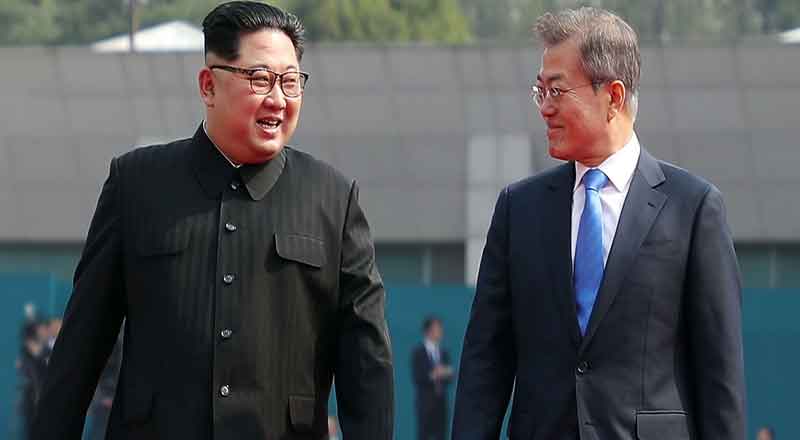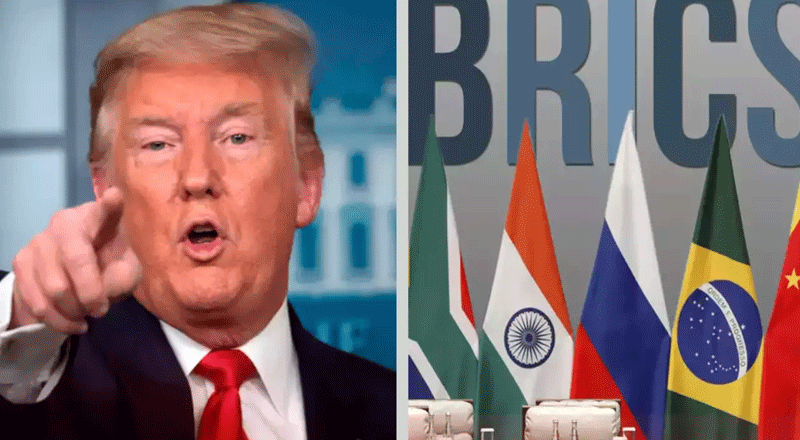The Complex History of North-South Relations
The relationship between North and South Korea has been fraught with tension and hostility ever since the Korean War ended in 1953 with an armistice, not a peace treaty. The two nations have remained technically at war for over 70 years, with occasional diplomatic efforts to ease tensions often overshadowed by military provocations, nuclear threats, and deep ideological divides. While South Korea, with U.S. backing, has embraced democracy and rapid economic development, North Korea remains an isolated, authoritarian state under the leadership of Kim Jong-un. The two Koreas’ conflict is one of the longest-standing in modern history, and recent events suggest that the hostility may be entering a new and dangerous phase.
North Korea Cuts Off Transport Links to the South
In the latest escalation, North Korea announced on Tuesday that it would sever all road and railway connections to South Korea, effective from Wednesday. This drastic move, according to the Korean People’s Army (KPA), is intended to “completely separate” the two nations. The KPA’s statement, published by North Korea’s state-run media outlet KCNA, described the move as a “self-defensive measure” aimed at countering what it perceives as increasing military threats from the South, including joint war exercises with the United States and the frequent presence of American nuclear assets in the region.
The KPA further elaborated that the military situation on the Korean Peninsula had become “acute,” necessitating more “resolute and stronger measures” to ensure North Korea’s national security. Although roads and railways between the two countries have been rarely used in recent years, the move is largely symbolic and reflects the growing hostility between Pyongyang and Seoul.
Heightened Tensions and Symbolic Actions
This decision to sever transport links follows a pattern of increasingly hostile actions by North Korea, aimed at distancing itself further from South Korea. Over the past year, relations have deteriorated sharply, with North Korea carrying out multiple missile tests, sending hundreds of propaganda balloons across the border, and renouncing any efforts toward peaceful reunification with the South.
Earlier in 2023, North Korean leader Kim Jong-un signaled a major policy shift when he suggested that the country’s constitution should be revised to remove references to reunification with the South. In a meeting of North Korea’s Supreme People’s Assembly (SPA), Kim expressed his view that the goal of peaceful reunification was no longer relevant, stating that the constitution should be amended to reflect North Korea’s new stance. This was seen as a clear indication that Pyongyang no longer seeks to mend ties with Seoul but rather aims to further entrench its divide.
Many observers had expected these constitutional revisions to be formalized during a recent session of the SPA, which concluded on Tuesday. However, no formal amendments were announced, leading some analysts to speculate that Pyongyang may be waiting for the outcome of the U.S. presidential election before making any final decisions. According to Hong Min, an analyst at the Korea Institute for National Unification, North Korea could be holding off on constitutional changes to see how the next U.S. administration might affect the geopolitical dynamics in the region.
North Korea’s Military Posturing
The announcement to cut off transport links also coincides with North Korea’s broader military posturing. Pyongyang has consistently criticized joint military exercises between South Korea and the U.S., often using them as justification for its own military provocations. The presence of U.S. nuclear assets in the region has further fueled North Korea’s rhetoric, with the regime frequently accusing the South of threatening its sovereignty.
Despite these provocations, the move to sever transport links is primarily symbolic. North Korea had already dismantled much of the infrastructure connecting the two countries in recent years. However, the declaration represents a significant escalation in rhetoric, signaling that Pyongyang is not interested in de-escalating tensions anytime soon. The regime’s continued missile tests, hostile propaganda campaigns, and refusal to engage in dialogue with Seoul only further underscore this shift.
Future of North-South Relations
North Korea’s decision to isolate itself further from South Korea has raised concerns about the future stability of the Korean Peninsula. The severing of road and rail links is yet another reminder of the fragile nature of peace in the region. With Pyongyang increasingly hostile and focused on strengthening its military capabilities, hopes for reconciliation between the two Koreas seem more distant than ever.
Moreover, Kim Jong-un’s remarks about revising the constitution to remove references to reunification have sparked fears that the prospect of peaceful coexistence is slipping away. The lack of formal amendments during the recent SPA session suggests that Pyongyang may be waiting for the outcome of the U.S. election to see how it will affect its relationship with both Seoul and Washington.
As tensions rise, the international community is watching closely, with many concerned that the situation on the Korean Peninsula could deteriorate further. North Korea’s symbolic cutting of ties with the South is a clear sign that the regime is preparing for a more confrontational stance, leaving little room for diplomacy in the near future.
(With inputs from agencies)





